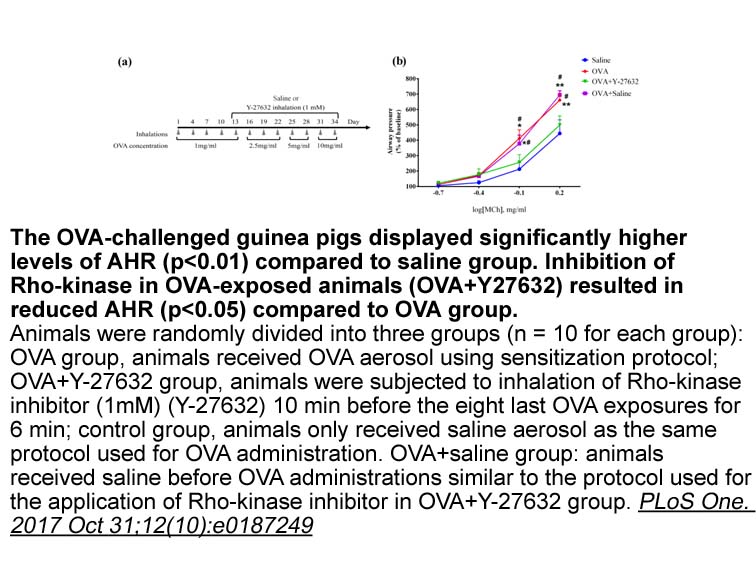Archives
Boceprevir NF B is a family of protein mediators that regula
NF-κB is a family of protein mediators that regulate various innate and adaptive immune responses [29,30]. The NF-κB family consists of the following five proteins: c-Rel (Rel); p65 (RelA); RelB; p50(NF-κB1); and p52(NF-κB2). It has been confirmed that NF-κB is activated by TNF family cytokines, such as TNF-α, to regulate cell proliferation, differentiation, and survival [31]. NF-κB has been confirmed to take part in the pathological mechanism underlying hepatic IR injury; activated NF-κB, in turn, leads to hepatocyte apoptosis and autophagy [32]. Sherif et al. [33] reported that vildagliptin exerts a protective effect on hepatic IR injury, and this effect is related to inhibition of the NF-κB signaling pathway. Qu et al. [34] showed that L-THP alleviates neuroinflammation by reducing the Boceprevir of NF-κB. Thus, we detected the levels of NF-κB protein and mRNA in liver tissues in our study. The results indicated that hepatic IR induced NF-κB expression, which was inhibited by L-THP pretreatment in a dosage-dependent manner. Extracellular signal-regulated kinase (ERK) is a member of the mitogen-activated protein kinases (MAPKs) signaling mediator family. ERK is considered a significant protein mediator that regulates cell proliferation and differentiation [35]. ERK is activated to phosphorylated-ERK (p-ERK) by a variety of stimuli, such as proinflammatory cytokines and drugs [36]. It has been confirm by previous studies that phosphorylation of ERK take part in liver disorders, including liver fibrosis [37], hepatocellular carcinoma [38], and hepatic IR injury [39]. Furthermore, previous studies have shown that ERK activates NF-κB [40,41]. Wu et al. [1] reported that quercetin alleviates hepatic IR injury by inhibiting the TNF-α-mediated ERK/NF-κB pathway. The results of our study showed that during hepatic IR injury, L-THP pretreatment inhibits ERK phosphorylation by reducing the release of TNF-α, and subsequently inhibiting the activation of NF-κB.
Activation of NF-κB induces hepatocyte apoptosis and autophagy during liver injury induced by IR [42,43]. The extent of apoptosis and autophagy were detected to better understand how L-THP pretreatment reduced liver injury during hepatic IR. Bax and Bcl-2 are members of the Bcl-2 protein family. Bax belongs to a pro-apoptotic signal ing mediator. Once activated, cytochrome C (cyto C) is produced into the cytoplasm [44] and activates caspase 3 and 9, leading to cell apoptosis [45], while Bcl-2 belongs to the anti-apoptotic mediators that reduces the release of cyto C. The Bcl-2:Bax ratio indicates the extent of cell apoptosis [46]. In our research, the results of western blotting, qRT-PCR and immunohistochemistry demonstrated that L-THP pretreatments upregulate Bcl-2 expression, while reducing these three proapoptotic proteins expression. The above results indicated that L-THP pretreatment alleviated hepatocyte apoptosis during hepatic IR injury by inhibiting NF-κB activation.
In addition to apoptosis, autophagy is another important process during organ ischemia and reperfusion damage, including liver. Beclin-1 and LC3 belong to biomarkers of cell autophagy. The Bcl-2-Beclin-1 complex is a significant mediator that regulates cell autophagy [47]. While Bcl-2 is inactivated, free Beclin-1 enhances cell autophagy. Transformation from LC3 I-to-LC3 II is crucial for the formation of autophagosomes [48]. The results of our research showed that L-THP pretreatment downregulates the expression of Beclin-1 and LC3. Based on the above results, we concluded that L-THP pretreatment alleviated IR injury by downregulating hepatocyte apoptosis and autophagy. Taken together, we found that L-THP alleviated the release of proinflammatory factors induced by hepatic IR, and alleviated liver cell apoptosis and autophagy via preventing the ERK/NF-κB signaling pathway activation; however, there were several limitations in our study and further investigation to verify the safety of L-THP for clinical use is warranted.
ing mediator. Once activated, cytochrome C (cyto C) is produced into the cytoplasm [44] and activates caspase 3 and 9, leading to cell apoptosis [45], while Bcl-2 belongs to the anti-apoptotic mediators that reduces the release of cyto C. The Bcl-2:Bax ratio indicates the extent of cell apoptosis [46]. In our research, the results of western blotting, qRT-PCR and immunohistochemistry demonstrated that L-THP pretreatments upregulate Bcl-2 expression, while reducing these three proapoptotic proteins expression. The above results indicated that L-THP pretreatment alleviated hepatocyte apoptosis during hepatic IR injury by inhibiting NF-κB activation.
In addition to apoptosis, autophagy is another important process during organ ischemia and reperfusion damage, including liver. Beclin-1 and LC3 belong to biomarkers of cell autophagy. The Bcl-2-Beclin-1 complex is a significant mediator that regulates cell autophagy [47]. While Bcl-2 is inactivated, free Beclin-1 enhances cell autophagy. Transformation from LC3 I-to-LC3 II is crucial for the formation of autophagosomes [48]. The results of our research showed that L-THP pretreatment downregulates the expression of Beclin-1 and LC3. Based on the above results, we concluded that L-THP pretreatment alleviated IR injury by downregulating hepatocyte apoptosis and autophagy. Taken together, we found that L-THP alleviated the release of proinflammatory factors induced by hepatic IR, and alleviated liver cell apoptosis and autophagy via preventing the ERK/NF-κB signaling pathway activation; however, there were several limitations in our study and further investigation to verify the safety of L-THP for clinical use is warranted.